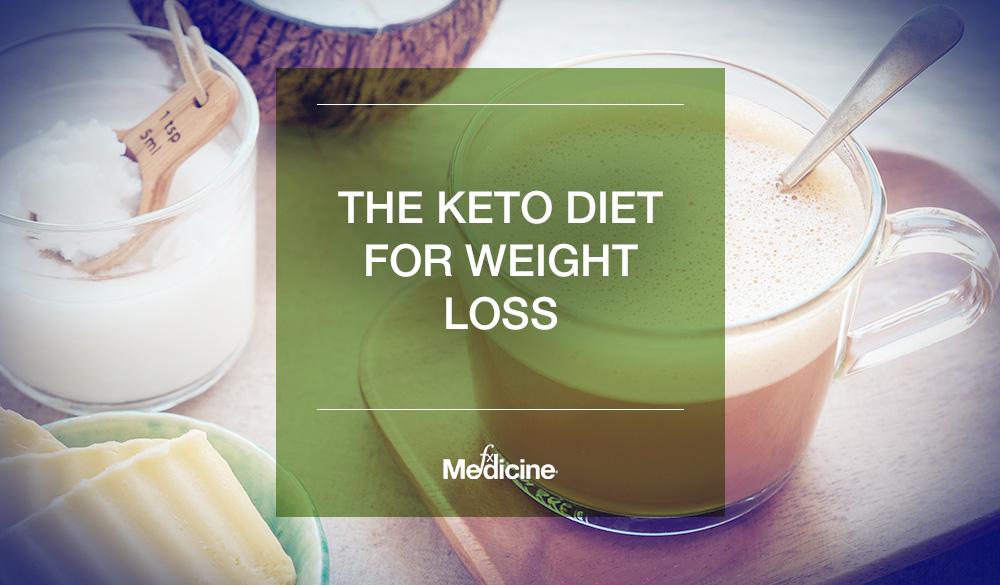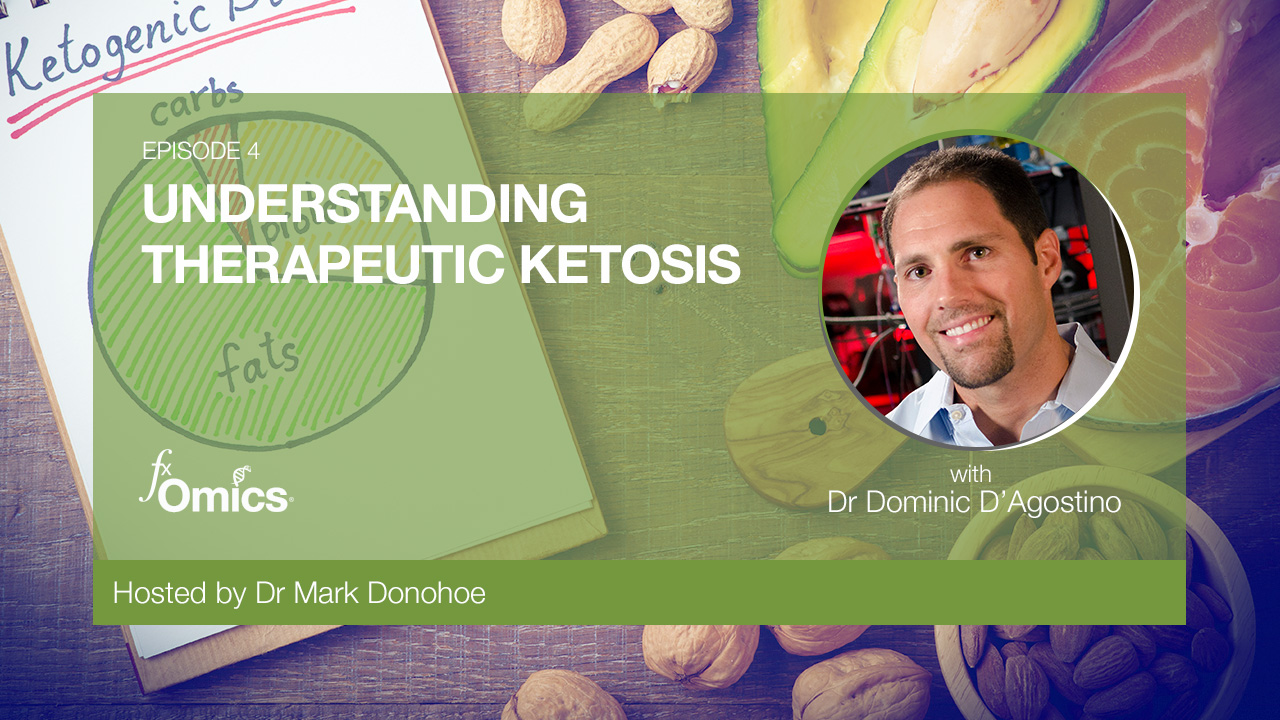Christine Valenzuela ● 4 min read
The ketogenic diet or ‘keto diet’ is a dietary approach that has been used for decades to treat specific medical conditions, such as epilepsy and type 2 diabetes.[1,2] However, more recently the keto diet is being used as a strategy for weight loss.[3,4]
What is the ketogenic diet?
The keto diet is characterised by a high intake of fat, adequate protein and a very low intake of carbohydrate.[1,5] While there are variations on the ratio of macronutrients, the standard ketogenic diet contains approximately 80% fat, 15% protein and 5% carbohydrates.6 Typically, carbohydrates are reduced to less than 50 grams a day in order to allow the body to utilise fat instead of glucose as its main source of energy.[1]
How the keto diet works
Normally, the body’s cells use glucose, derived from breaking down carbohydrate-rich foods, as its primary source of energy. However, by depriving the body of carbohydrates via reducing intake to less than 50g per day, the body begins to deplete its glucose stores. After three to four days of consuming all available glucose, the body is then forced into a state of ketosis - where it starts breaking down fat in the liver to produce ketones, or ketone bodies, as an alternative source of fuel for the body.[1]
While the actual mechanisms by which the ketogenic diet promotes weight loss is still a source of debate, there have been several reasons put forward
- these include the satiating properties of fat and protein in the diet, changes in appetite-regulating hormones, and a direct appetite suppressant action of the ketone bodies.[4,3]
Despite decades of dietary guidelines promoting low-fat eating, obesity rates are on the rise.4 As a result, researchers and clinicians are continuing to shift their attention to ketogenic diet for weight loss, especially its effectiveness, and effect on health, over the long-term.[4,3]
Understanding Therapeutic Ketosis with Dr Dominic D'Agostino - LISTEN NOW
Evidence behind the keto diet
Research shows good evidence for weight loss when patients go on a ketogenic, or very low carbohydrate diet, compared to participants on a more traditional low-fat diet. [7,8,9] For instance, the results of a randomised study of 119 overweight individuals placed on a low-carb ketogenic diet, in conjunction with nutritional supplements, for 6 months revealed that the low-carb group lost 12.9kg on average, while the low-fat group lost only 6.7kg.[9]
In addition, a meta-analysis of 13 randomised controlled trials found that people on the ketogenic diet had a significantly greater reduction in weight loss compared to those who followed a low-fat diet after one year.[10]
Top 5 keto diet essentials
MCT oil – Medium chain triglycerides (MCTs) can be derived from coconut oil and are medium-length chains of fatty acids that are rapidly digested and absorbed for fast energy utilisation. MCTs coconut oil have been shown to reduce body weight and waist circumference.[11,12]
BHB – Beta-hydroxybutyrate is a source of ketone bodies that have been shown to increase blood ketone levels, reducing the time it takes to get into a state of ketosis. This can be beneficial in reaching a ketogenic state more efficiently than having to prepare and consume foods on a keto diet.[13]
Avocado – A high kilojoule, high-fat food, avocados are around 85% fat. However, most of the fat in avocados are monounsaturated, a healthy heart-healthy fat that does not raise blood cholesterol levels. They also offer fibre and essential vitamins and minerals.[14]
Coconut – Another healthy and high fat food - coconuts and coconut oil provide a natural source of MCTs. MCTs are more likely to be burned as energy and less likely to be stored as fat, helping to support weight loss.[11]
Collagen protein – A vital protein for the growth and recovery of muscles. One study in elderly men found that collagen combined with resistance training increased fat-free mass and muscle strength while lowering fat.[15]
The ketogenic diet is suitable for a wide range of people, but it’s important to note that it might not work for everyone. Always speak with your health professional when considering adopting a new diet. To find a health professional in your area, please visit our Find a Practitioner page.
References
- Paoli A, Rubini A, Volek JS, et al. (2013). Beyond weight loss: a review of the therapeutic uses of very-low-carbohydrate (ketogenic) diets. European Journal of Clinical Nutrition, 2013;67(8):789–796. [Abstract]
- Yancy WS, Foy M, Chalecki AM, et al. A low-carbohydrate, ketogenic diet to treat type 2 diabetes. Nutrition & Metabolism, 2005;2(1):34. [Full Text]
- Paoli A. Ketogenic Diet for Obesity: Friend or Foe? International Journal of Environmental Research and Public Health, 2014;11(2): 2092–2107.[Full Text]
- Abbasi J. Interest in the Ketogenic Diet Grows for Weight Loss and Type 2 Diabetes. JAMA, 2018;319(3):215. [Abstract]
- Freeman JM, Kossoff EH, Hartman AL. The Ketogenic Diet: One Decade Later. PEDIATRICS, 2007;119(3):535–543. [Abstract]
- Paoli A, Bianco A, Grimaldi KA. The Ketogenic Diet and Sport. Exercise and Sport Sciences Reviews, 2015;43(3):153–162. [Abstract]
- Yancy WS, Olsen MK, Guyton JR, et al. A Low-Carbohydrate, Ketogenic Diet versus a Low-Fat Diet To Treat Obesity and Hyperlipidemia. Annals of Internal Medicine, 2004;140(10):769.[Abstract]
- Brehm BJ, Seeley RJ, Daniels SR, et al. A Randomized Trial Comparing a Very Low Carbohydrate Diet and a Calorie-Restricted Low Fat Diet on Body Weight and Cardiovascular Risk Factors in Healthy Women. The Journal of Clinical Endocrinology & Metabolism, 2003;88(4):1617–1623.[Abstract]
- McClernon FJ, Yancy WS, Eberstein JA, et al. The Effects of a Low-Carbohydrate Ketogenic Diet and a Low-Fat Diet on Mood, Hunger, and Other Self-Reported Symptoms*. Obesity, 2007;15(1):182–182.[Abstract]
- Bueno NB, de Melo ISV, de Oliveira SL, et al. Very-low-carbohydrate ketogenic diet v. low-fat diet for long-term weight loss: a meta-analysis of randomised controlled trials. British Journal of Nutrition, 2013;110(07):1178–1187.[Abstract]
- Rial S, Karelis A, Bergeron KF, et al. Gut Microbiota and Metabolic Health: The Potential Beneficial Effects of a Medium Chain Triglyceride Diet in Obese Individuals. Nutrients, 2016;8(5):281.[Abstract]
- Yi-Qian NY, Ling PR, Qu JZ, et al. Effects of medium-chain triglycerides, long-chain triglycerides, or 2-monododecanoin on fatty acid composition in the portal vein, intestinal lymph, and systematic circulation in rats. JPEN J Parenter Enteral Nutr, 2008;32(2):169-175.[Full Text]
- Clarke K, Tchabanenko K, Pawlosky R, et al. Kinetics, safety and tolerability of (R)-3-hydroxybutyl (R)-3-hydroxybutyrate in healthy adult subjects. Regulatory Toxicology and Pharmacology, 2012;63(3):401–408.[Abstract]
- Stanton, R. Foods that harm, foods that heal. An Australian & New Zealand Guide to Healthy Eating. Reader’s Digest (Australia) Pty Ltd, 2nd Ed. Australia, 2007.[Source]
- Zdzieblik D, Oesser S, Baumstark MW. Collagen peptide supplementation in combination with resistance training improves body composition and increases muscle strength in elderly sarcopenic men: a randomised controlled trial. British Journal of Nutrition, 2015;114(08):1237–1245.[Abstract]
DISCLAIMER:
The information provided on FX Medicine is for educational and informational purposes only. The information provided on this site is not, nor is it intended to be, a substitute for professional advice or care. Please seek the advice of a qualified health care professional in the event something you have read here raises questions or concerns regarding your health.




